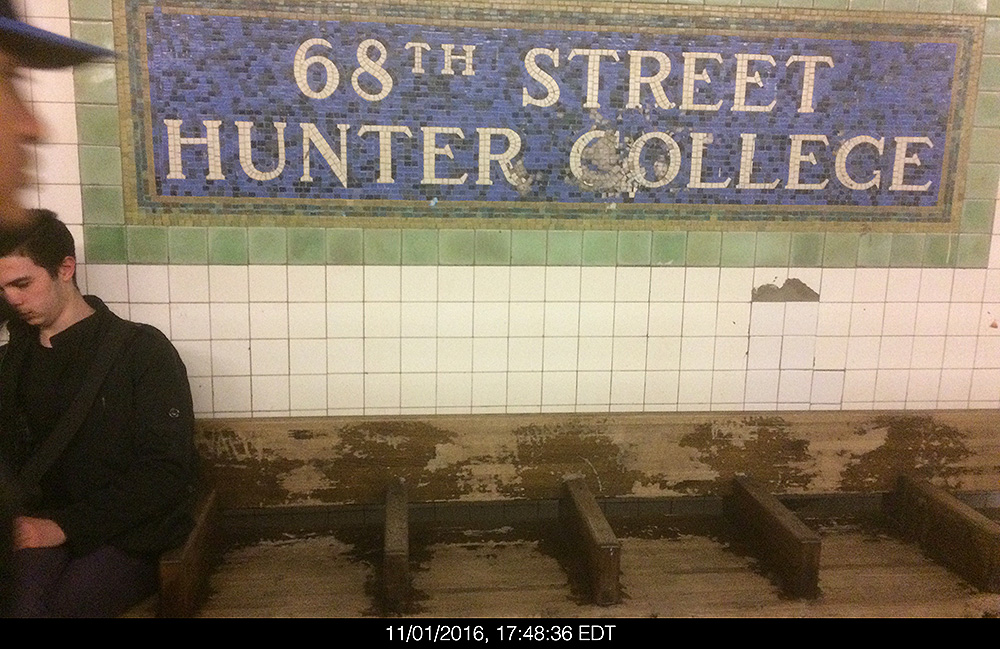 By Contributing Writer Lesia Forde
By Contributing Writer Lesia Forde
Do the comments of five students about how they view and interact with news and news sources reflect the overall temperament of that segment of the Hunter student body, 19 to 28 years old?
Hunter has 16,550 undergraduate students, according to its 2015 facts and statistics, so this writer wouldn’t dare argue that five interviews reflect an overall student sentiment. Nevertheless, I believe they provide some insight about Hunter millennials and my findings reflect the findings in Parts 1, 2, 3 and 4 of this project about Hunter’s millennials.
Some interviewees said news coverage was unreliable and partisan. A psychology major who lives in Hunts Point, South Bronx, Roselmi Felipe, a 19-year-old junior, said she did not feel that what is regarded as the country’s main news sources were trustworthy. “Something that has become more pervasive in American news, is the political polarization of our news and how it is often warped in order to cater to certain audiences,” said Felipe.
Dressed in a blue low-cut wolf T-shirt, denim shorts, a white low-cut converse, and a black choker with a cream skull pendant, Felipe was rushing to put her books from a table in the corner of the student cafeteria into her knapsack because her psychology class was about to start in 10 minutes. Standing, she said that the political polarization within the news effects the public far greater than we can imagine.“As a result, people don’t get the whole truth, just the parts that they want us to hear,” said Felipe.
Said 23-year-old media studies major Avid Maldonado: “I want to believe that people are telling the truth and that I am being informed truthfully, but at the same time I know sometimes things are just written for attention.”
Which news organization is the most complicated. “The answer is complicated,” according to a 2014 Pew Research Center report.
Some interviewees said that news organizations either identify as liberal or conservative, and that as a result, the reporting can usually be directed toward either of the two. Said Julia Suarez, a 19-year-old sophomore who lives in Woodhaven, Queens, New York. “Fox News’s audience is more conservative than liberal, so their stories are focused on issues that conservatives want to watch and talk about. Similarly, CNN has a more liberal audience, so their news stories focus on what liberals want to watch and discuss,”
If people feel as though they cannot trust the reporting of major news organizations, what does that potentially mean? “I think my news sources are trustworthy,” Suarez replied. “My news basically comes from social media platforms where there isn’t a particular political or social bias, unlike newspapers and television broadcast.” Undecided about a major, she said she was considering majoring in either media studies or communications.
This writer believes, however, that social media platforms can be also be forums where political or social biases exist. Social media platforms include Twitter, Snapchat, Instagram, Facebook and interviewed students use popular news apps for CNN, New York Daily News and New York Times. “They are the most convenient and readily available sources,” said Felipe.
“It is just easily accessible, since the apps are on my phone,” said Suarez. “Twitter also has a moments section where members can find recent news on different topics like technology, style, the 2016 election campaign, world news, music and more. “Snapchat has something similar” to Twitter, said Suarez.
Students interviewed said they believed that there were several approaches that could be taken to make news more engaging and effective. “Less celebrity drama and more information about what is going on in the five boroughs, since that affects me more than Chris Brown and his antics,” said Maldonado.
“I think news involving celebrities, sometimes make headlines that aren’t as shocking as the reporters or writers make it out to be,” said Suarez. Others said something needed to be added, rather than taken away from the reporting that is being presented to the public. Angelica Julian, a senior majoring in nursing, said, “I would add more diverse topics and try to draw all audiences together, rather than objectifying a particular group of people.” Julian is also a resident of St. Albans, Queens, New York.
“I also think that news involving women’s rights and LGBTQ rights are important, and should make more headlines. The more we see them making headlines in our news, the more we talk about them and become aware of what’s happening in the world,” said Suarez.
“I would want to change the fact that all of our major news outlets today are controlled by corporations,” said Felipe, “this doesn’t allow news reporters to tell the whole truth, because they are being controlled and censored by the network. It’s often in the best interest of those higher up, not the people.”
If these changes were implemented, would more students start tuning into live news networks?
Lesia Forde can be reached at lesiaforde@yahoo.com